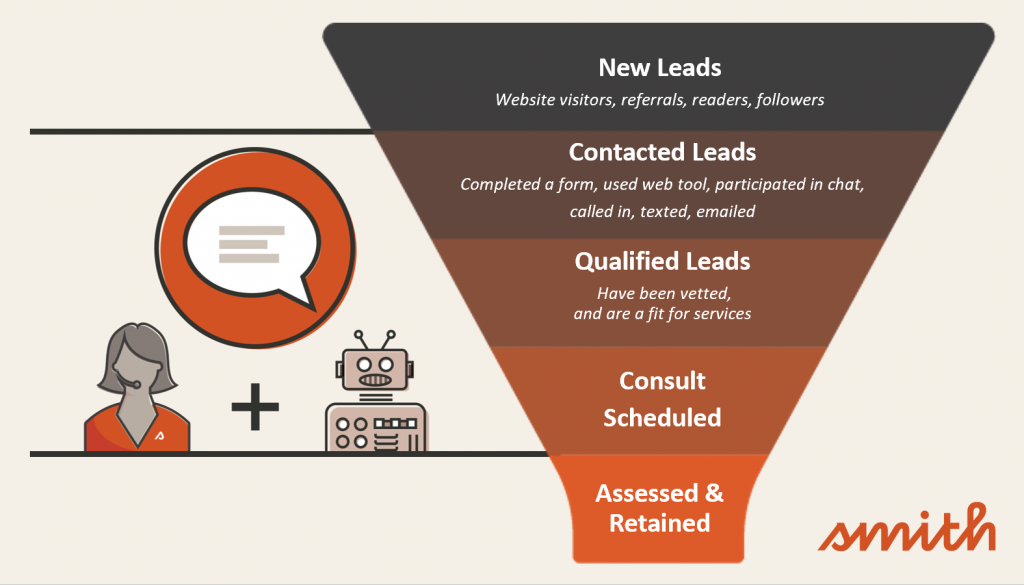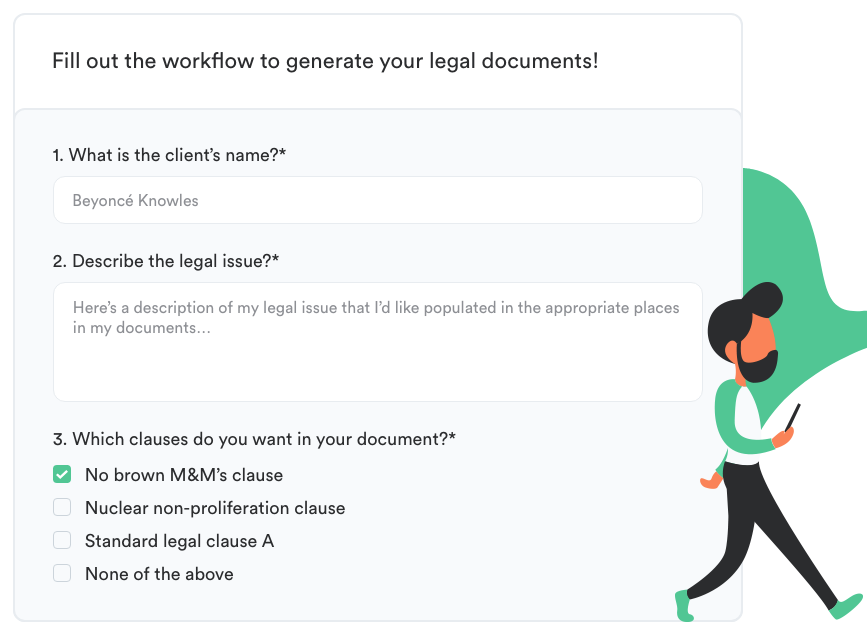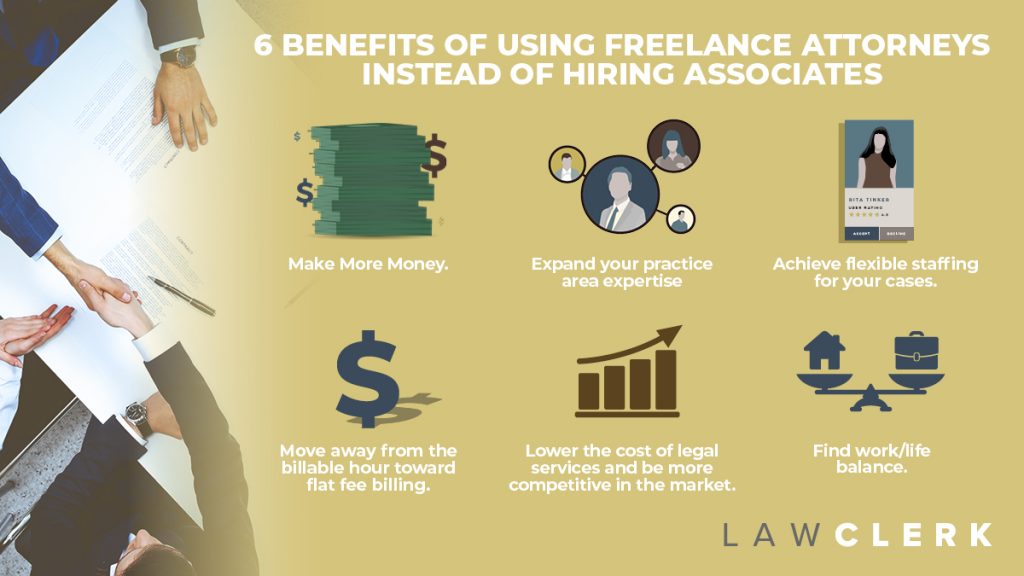How to Virtually Win and Work a Case from Start to Finish
Treat your future-self right, and run your law firm like the business it is by following these simple recommendations for leveraging remote help and technology, ethically and effectively.
October 17, 2019 at 02:45 PM
7 minute read

More and more attorneys are choosing to chart their own career path and build a completely virtual practice. If you are considering a virtual practice or already enjoying the freedom of working from home in your PJ's, here are three techniques to help win and work a case from start to finish—virtually.
Part 1: Win a Case with Virtual Help
Small-firm attorneys face many dilemmas. One that's particularly difficult for solo and micro-firm lawyers is the demand for an instantaneous response from leads combined with the responsibility to get work done for existing clients. Leads demand you answer the phone, but interruptions kill productivity. Not to mention of the clients who do secure a consult with you, only 40% of them will retain your firm. Nearly 70% of potential clients say their "decision to hire" an attorney is most influenced by their responsiveness to their first call or email, but 60% won't end up hiring you. The odds aren't exactly stacked in solos' favor.
So, the matter of how to win a client is intertwined with whether to win that particular client. The process of capturing, screening, and converting new clients is often represented by a funnel, like this:

No small business owner, attorney or otherwise, has time to handle all these steps alone. It's not so much about if you can win a new case virtually but pinpointing the areas of the funnel that can best be a.) handled virtually, b.) handed off to capable virtual teams, or both.
Capturing, screening, scheduling are the top three areas in the "winning" stage that present the best outsourcing opportunities because sensitivity to timing is high while the risk is low. Meaning, if you can hand it off for fast, consistent responses, you will immediately benefit from capturing clients who you otherwise would have missed.
Part 2: Use Intake to Generate All Documents
Virtualizing your practice doesn't stop when the new lead retains your firm. Case work, document collection and completion, and status updates can also be handled through virtualized software and services.
You can use your client intake process to generate every form or template-based document in your case. Document automation/document assembly can help shave 90% off that drafting time.
Your clients are already going through an intake process—whether through you, your paralegal, or through an online intake form. You can use this data to efficiently generate the first documents in the case (e.g., the complaint/answer, discovery, agreements). Then, continue to use the data later in the case to generate further case-related documents.

Document automation tools allow you to create mobile and tablet-friendly intake interviews that flow into your documents. Simple documents take a few minutes to set up, but it's flexible enough to accommodate sets of multiple documents with complex conditional logic, boolean operators, and calculations.
For example, a virtual law firm can send their intake interview to a new client. The client's answers are returned to the attorney along with the auto-generated court cover sheet, an initial draft complaint, and the first set of discovery (all based on the firm's own custom templates).
Part 3: Get the Help You Need, When You Need It
One of the great benefits of running a virtual firm is you don't have to maintain a large staff and office space. But you are still going to need some help from time to time or maybe even on a regular basis.
When it comes to getting work done, there are endless resources available for tech-minded attorneys. Thanks to technology, a virtual attorney can collaborate with receptionists, typists, paralegals and even other lawyers to get the help they need when they need it.

Attorneys can outsource everything from simple research memos to complicated appellate briefs. They can even outsource for deposition coverage or appearance counsel. Outsourcing to freelance lawyers allows you to get help when you need it without having to pay for it when you don't. Outsourcing is more economical than hiring a traditional associate. Those savings can be passed along to your clients, which gives you a competitive advantage.
Another smart way to gain a competitive advantage is to tap into the time and expertise of freelancers. Many freelance lawyers have decades of experience—maybe even more than you. Many have become subject matter experts in particular areas of law. You can work with them on an as-needed basis to gain a huge advantage for your clients.
Online marketplaces make outsourcing easy and accessible for lawyers to hire or be hired as freelancers, and the convenience of managing everything online really streamlines the workflow.
Top 3 Client-Winning Tips Leveraging Online Tools and Remote Help
The time to ask for help with winning clients is now. Treat your future-self right, and run your law firm like the business it is by following these three simple recommendations for leveraging remote help and technology, ethically and effectively:
1. Pick up every call during business hours. It's really that simple. Voicemail is a one-way communication that not only gives the lead no indication when they may hear back from you (if ever), but it also gives a terrible first experience with your firm. Don't introduce skepticism in a field that's already foggy for many clients (many of whom who have never worked with a lawyer) by adding more uncertainty into the mix.
2. Use a free online scheduling tool. If you're not yet using Calendly (it's free), Acuity, or another online calendaring solution that lets you share your calendar link on your website, in your email signature, and with remote teams, you're missing out on the easiest, cheapest, and most effective lead-screening hack of the modern law firm. Post your calendar link online, embed it in your email signature, and share it with your remote receptionists for use during phone calls and website chats (with clear directions for proper use).
3. Accept credit cards. And charge for consults, if your practice area allows it. Win more clients when you accept the forms of payment your clients demand. Set a clear precedent upfront that your time is worth money and weed out insincere, ill-fitting, or ill-timed leads. Taking payment by credit or debit card (or even ACH) during an online consult booking will help you cut down on tire-kickers, no-shows, and other time-wasting personas.
Maddy Martin is the head of growth and education for Smith.ai, a superior virtual receptionist service for phone calls, web chat, and text messages that combines human intelligence and AI to help small service-driven businesses like law firms achieve happier clients and more qualified leads.
Dorna Moini is the CEO of Documate, a no-code platform for turning templates and forms into intelligent workflows. Documate can be used within a firm or externally, to create powerful document automation, to collect client information, and to sell forms by building custom legal apps.
Kristin Tyler is Co-Founder of LAWCLERK, where attorneys go to hire freelance lawyers. Savvy solo attorneys and small firms can leverage the time and talent of freelancers to increase their productivity and their profitability.
This content has been archived. It is available through our partners, LexisNexis® and Bloomberg Law.
To view this content, please continue to their sites.
Not a Lexis Subscriber?
Subscribe Now
Not a Bloomberg Law Subscriber?
Subscribe Now
NOT FOR REPRINT
© 2025 ALM Global, LLC, All Rights Reserved. Request academic re-use from www.copyright.com. All other uses, submit a request to [email protected]. For more information visit Asset & Logo Licensing.
You Might Like
View AllTrending Stories
- 1LexisNexis Announces Public Availability of Personalized AI Assistant Protégé
- 2Some Thoughts on What It Takes to Connect With Millennial Jurors
- 3Artificial Wisdom or Automated Folly? Practical Considerations for Arbitration Practitioners to Address the AI Conundrum
- 4The New Global M&A Kings All Have Something in Common
- 5Big Law Aims to Make DEI Less Divisive in Trump's Second Term
Who Got The Work
J. Brugh Lower of Gibbons has entered an appearance for industrial equipment supplier Devco Corporation in a pending trademark infringement lawsuit. The suit, accusing the defendant of selling knock-off Graco products, was filed Dec. 18 in New Jersey District Court by Rivkin Radler on behalf of Graco Inc. and Graco Minnesota. The case, assigned to U.S. District Judge Zahid N. Quraishi, is 3:24-cv-11294, Graco Inc. et al v. Devco Corporation.
Who Got The Work
Rebecca Maller-Stein and Kent A. Yalowitz of Arnold & Porter Kaye Scholer have entered their appearances for Hanaco Venture Capital and its executives, Lior Prosor and David Frankel, in a pending securities lawsuit. The action, filed on Dec. 24 in New York Southern District Court by Zell, Aron & Co. on behalf of Goldeneye Advisors, accuses the defendants of negligently and fraudulently managing the plaintiff's $1 million investment. The case, assigned to U.S. District Judge Vernon S. Broderick, is 1:24-cv-09918, Goldeneye Advisors, LLC v. Hanaco Venture Capital, Ltd. et al.
Who Got The Work
Attorneys from A&O Shearman has stepped in as defense counsel for Toronto-Dominion Bank and other defendants in a pending securities class action. The suit, filed Dec. 11 in New York Southern District Court by Bleichmar Fonti & Auld, accuses the defendants of concealing the bank's 'pervasive' deficiencies in regards to its compliance with the Bank Secrecy Act and the quality of its anti-money laundering controls. The case, assigned to U.S. District Judge Arun Subramanian, is 1:24-cv-09445, Gonzalez v. The Toronto-Dominion Bank et al.
Who Got The Work
Crown Castle International, a Pennsylvania company providing shared communications infrastructure, has turned to Luke D. Wolf of Gordon Rees Scully Mansukhani to fend off a pending breach-of-contract lawsuit. The court action, filed Nov. 25 in Michigan Eastern District Court by Hooper Hathaway PC on behalf of The Town Residences LLC, accuses Crown Castle of failing to transfer approximately $30,000 in utility payments from T-Mobile in breach of a roof-top lease and assignment agreement. The case, assigned to U.S. District Judge Susan K. Declercq, is 2:24-cv-13131, The Town Residences LLC v. T-Mobile US, Inc. et al.
Who Got The Work
Wilfred P. Coronato and Daniel M. Schwartz of McCarter & English have stepped in as defense counsel to Electrolux Home Products Inc. in a pending product liability lawsuit. The court action, filed Nov. 26 in New York Eastern District Court by Poulos Lopiccolo PC and Nagel Rice LLP on behalf of David Stern, alleges that the defendant's refrigerators’ drawers and shelving repeatedly break and fall apart within months after purchase. The case, assigned to U.S. District Judge Joan M. Azrack, is 2:24-cv-08204, Stern v. Electrolux Home Products, Inc.
Featured Firms
Law Offices of Gary Martin Hays & Associates, P.C.
(470) 294-1674
Law Offices of Mark E. Salomone
(857) 444-6468
Smith & Hassler
(713) 739-1250






